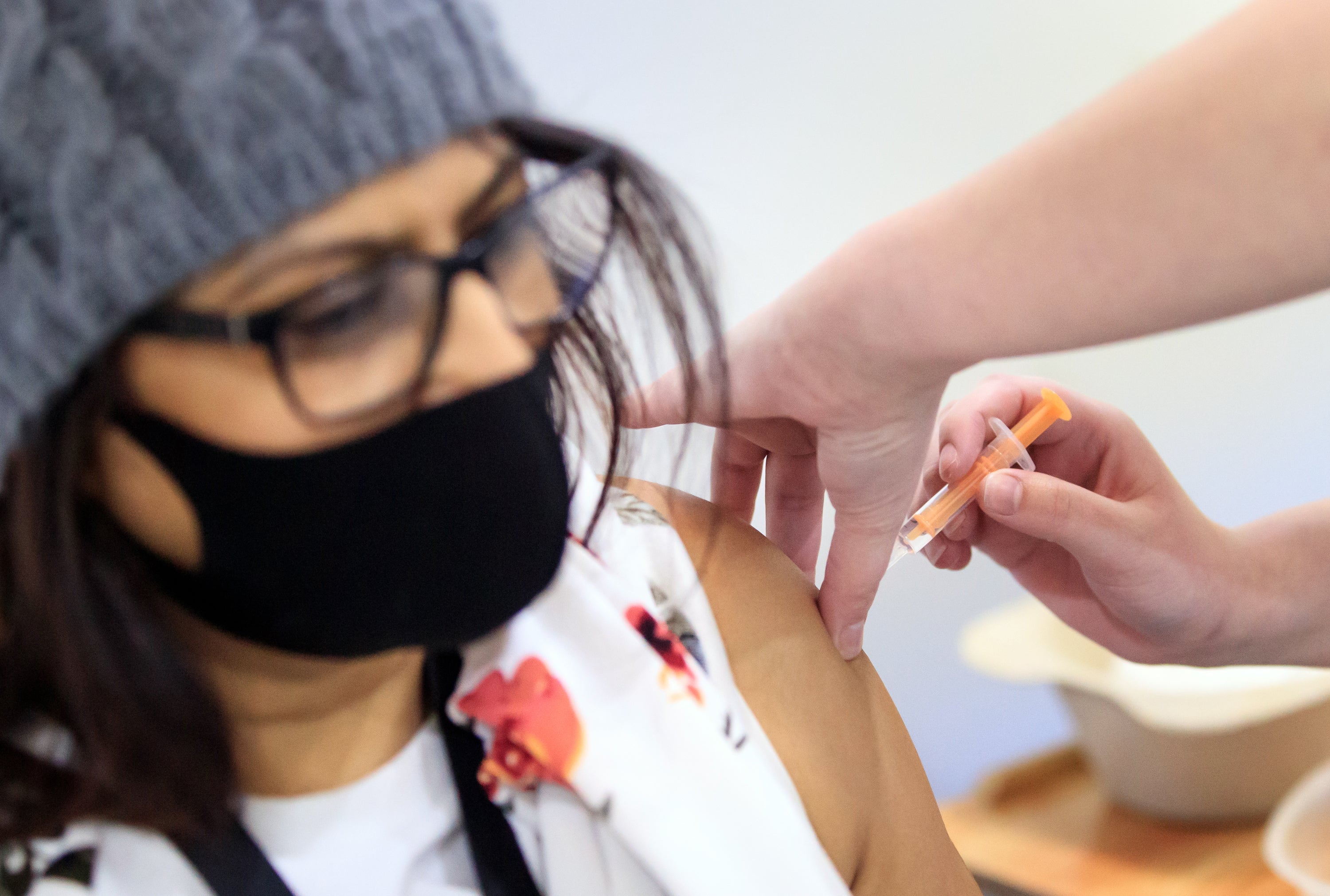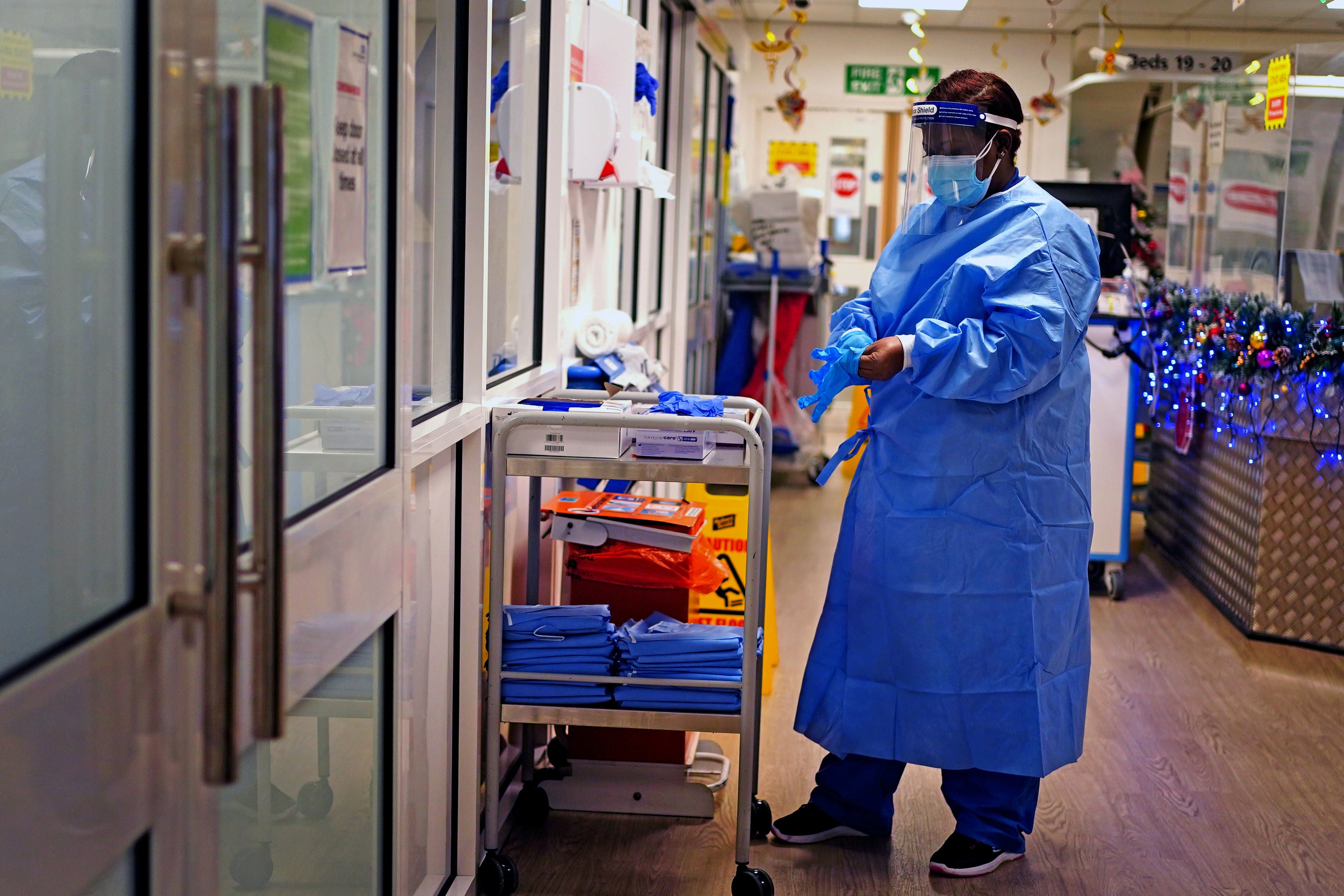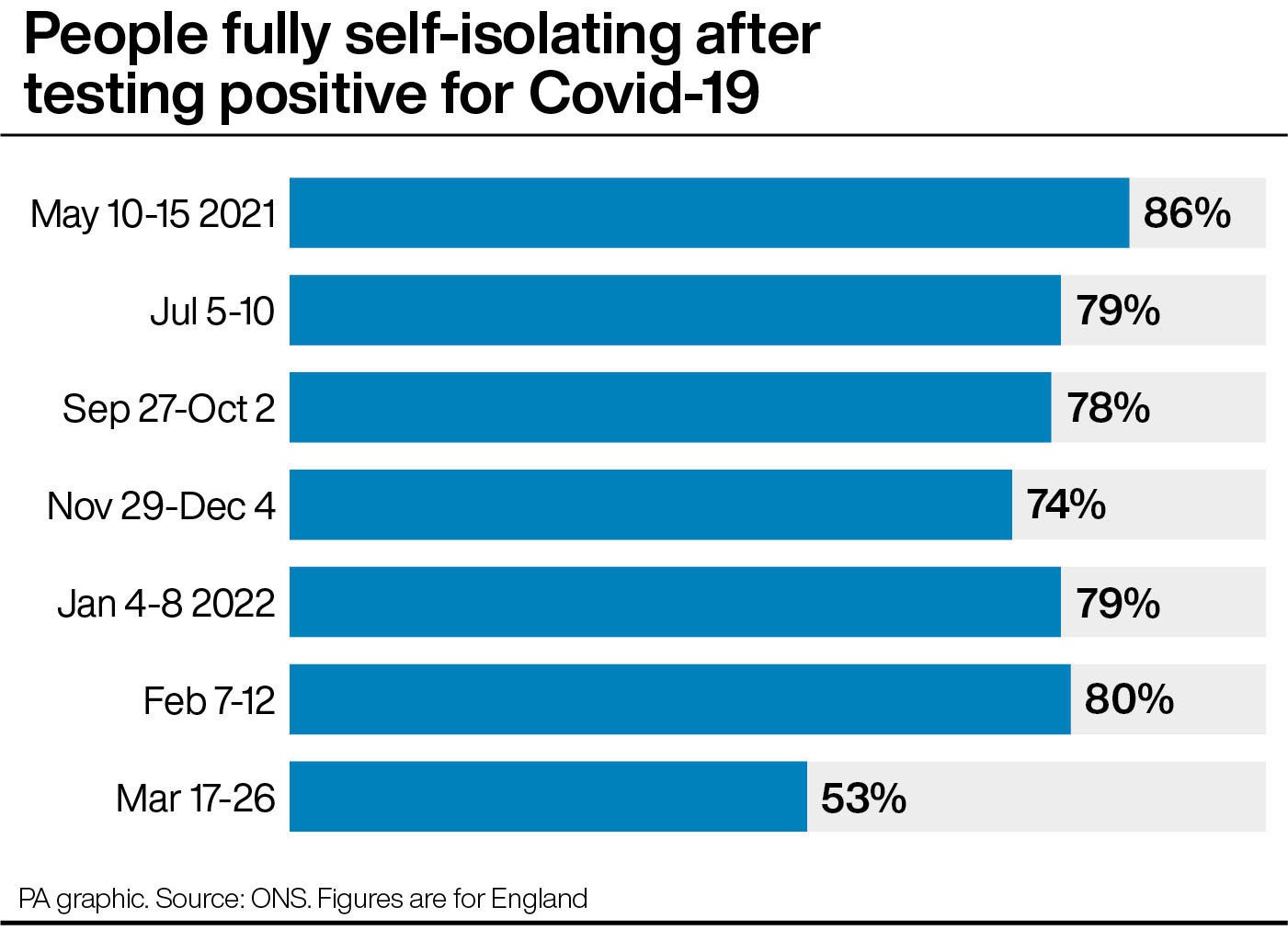Covid cases are down but how will we live with the virus long term?
Vaccines will play a big role in protecting people against the virus
Your support helps us to tell the story
From reproductive rights to climate change to Big Tech, The Independent is on the ground when the story is developing. Whether it's investigating the financials of Elon Musk's pro-Trump PAC or producing our latest documentary, 'The A Word', which shines a light on the American women fighting for reproductive rights, we know how important it is to parse out the facts from the messaging.
At such a critical moment in US history, we need reporters on the ground. Your donation allows us to keep sending journalists to speak to both sides of the story.
The Independent is trusted by Americans across the entire political spectrum. And unlike many other quality news outlets, we choose not to lock Americans out of our reporting and analysis with paywalls. We believe quality journalism should be available to everyone, paid for by those who can afford it.
Your support makes all the difference.More than two years have passed since Covid plunged the UK into its first nationwide lockdown.
To date there have been 22.2 millon cases of the coronavirus across the country and around 176,000 deaths.
But it now looks as though we could be past the worst of the pandemic with cases, hospitalisations and deaths all trending downwards for the last two months.
While the decline confirmed infections may well have been impacted by the ending of free testing, the picture is of a country that is less fearful of a virus that had a devastating effect on the world.
However, like many illnesses the virus will likely remain a feature of everyday life for years to come.
So how will we live with Covid?
Vaccines
The NHS has administered 142,173,629 Covid vaccinations so far, according to the latest available data, and the shots will continue to play a big role in protecting people against the virus.
Vaccines do not offer full protection against Covid.
Covid can still kill but the injections and other treatments mean the risks are much lower than they were at the start of the pandemic.

Boris Johnson's government has said it plans to treat Covid like the flu and people are being urged to stay at home if they get the virus or show any symptoms.
He said that some surveillance of the coronavirus would remain in place, allowing for a rapid response to new variants, which could be quickly scaled up.
He also cited the much-weakened link between Covid cases and deaths due to vaccines, antivirals and the lower severity of the Omicron variant as informing his decision.
The end of restrictions
The prime minister in February this year scrapped all Covid laws in England, as part of the government's plan to live with the virus.
Mr Johnson ended mandatory self-isolation for people who tested positive for the virus and people must now pay for their own tests.
The government currently has no plans to re-introduce restrictions, although some people have continued to take measures to protect themselves, such as wearing face masks in crowded places.

What about variants?
New Covid variants will remain a risk, particularly as people begin to travel more widely abroad over the summer months.
Experts say that, over time, viruses evolve and become milder over time, with the Spanish flue in 1918 cited as an example.
There is no guarantee, however, that this will be the case.

Omicron
There are two subvariants of Omicron - BA.4 and BA.5 - are thought to have contributed to a new wave of Covid in South Africa.
It is unclear at this point whether they spread more quickly than their predecessors, BA.3, BA.2 and BA.1.
Professor Peter Openshaw, of Imperial College London, said experts continue to assess the potential dangers associated with subvariants.
"Everyone is thinking of sub-variants," he said. "We just don't know whether they will cause a surge in infections and where they will go in the UK."

Join our commenting forum
Join thought-provoking conversations, follow other Independent readers and see their replies
Comments